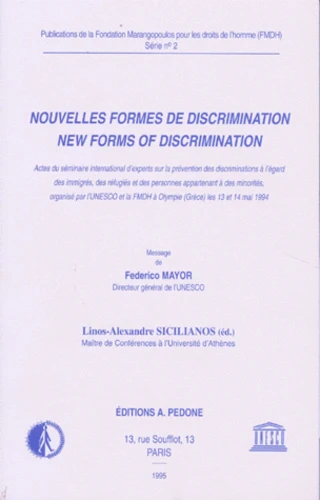

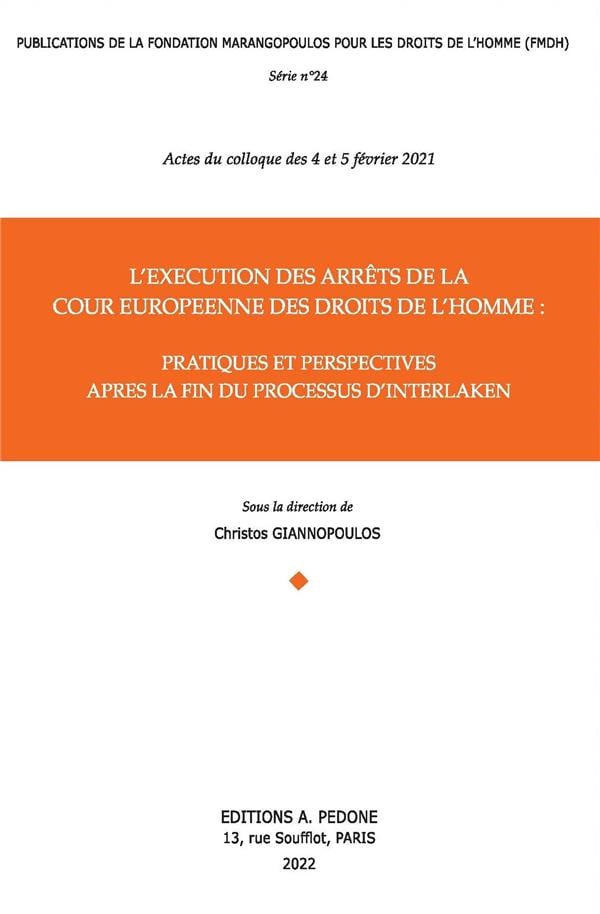
L’EXÉCUTION DES ARRÊTS DE LA COUR EUROPÉENNE DES DROITS DE L’HOMME
At the end of the Interlaken Conference in February 2010, an Action Plan was made to improve the efficiency of the system for monitoring the execution of judgments and decisions of the European Court of Human Rights. Twelve years later, the time is ripe for an in-depth reflection of the various legal and political measures … Read more
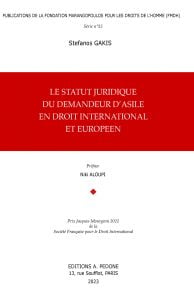
LE STATUT JURIDIQUE DU DEMANDEUR D’ASILE EN DROIT INTERNATIONAL ET EUROPÉEN (The legal status of asylum seekers in international and european law)
The term “asylum seeker” is usually used to designate, often descriptively, a person seeking certain predefined types of international protection. The person in question is apprehended under the prism of refugee status as a “candidate refugee” or assimilated to other migrants lacking legal status. This book invites the readership to reflect upon the existence, in … Read more
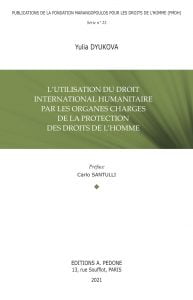
L’UTILISATION DU DROIT INTERNATIONAL HUMANITAIRE PAR LES ORGANES CHARGÉS DE LA PROTECTION DES DROITS DE L’HOMMEL’UTILISATION DU DROIT INTERNATIONAL HUMANITAIRE PAR LES ORGANES CHARGÉS DE LA PROTECTION DES DROITS DE L’HOMME (The use of International Humanitarian Law by the Human Rights Organs)
International human rights law and international humanitarian law are two branches of public international law that share the objective of protecting individuals. However, resulting from different historical and political processes, these two legal regimes are not based on the same principles and their institutional systems are very distinct. This research aims to study how the … Read more
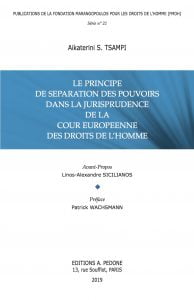
LE PRINCIPE DE SEPARATION DES POUVOIRS DANS LA JURISPRUDENCE DE LA COUR EUROPÉENNE DES DROITS DE L’HOMME (The principle of separation of powers in the case-law of the European Court’s of Human Rights)
What about a constitutional principle regarding the institutional organisation of a State, such as the separation of powers, in the case-law of an international human rights court, notably the European Court of Human Rights? Although it would be daring to prove that the Strasbourg judge applies to a certain extent the theory of separation of … Read more
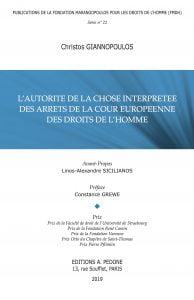
L’ AUTORITÉ DE LA CHOSE INTERPRÉTÉE DESARRÊTS DE LA COUR EUROPÉENNE DES DROITS DE L’HOMME (THE AUTHORITY OF THE Res Interpretata OF THE JUDGMENTS OF THE EUROPEAN COURT OF HUMAN RIGHTS)
The authority of the res interpretata of the judgments of the ECtHR is a concept with a dual meaning. It designates both the jurisprudential authority and the interpretative authority of the ECtHR. These two interconnected aspects attest the distinctive nature of its jurisprudence. Thus, the binding force of the decision is not limited to the … Read more
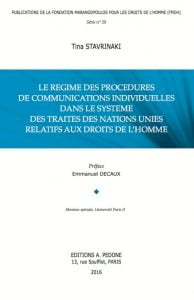
Le régime des procédures de communications individuelles dans le système des traités des Nations Unies relatifs aux droits de l’HommeLe régime des procédures de communications individuelles dans le système des traités des Nations Unies relatifs aux droits de l’Homme (The regime of individual communications procedures in the United Nations human rights treaty system)
The empirical construction of the system of the United Nations Human Rights Treaties is founded on a consensus among States, also covering the established Committees by these instruments. Nine UN instruments on human rights entrust their respective monitoring body to examine individual communications and they materialise the emergence of a right to an international remedy. … Read more
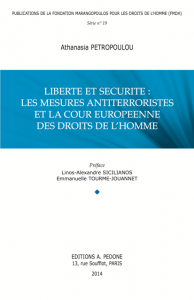
Freedom and security : anti-terrorism measures and the European Convention on Human Rights (Liberté et sécurité: les mesures antiterroristes et la Convention européenne des droits de l’homme)
The dialectical relationship between freedom and security in the context of the fight against terrorism sheds light on the ambiguity and the difficulties to articulate these notions, reflecting this specific dilemma to democratic regimes: how to safeguard democracy without destroying it. The question on the protection of human rights in the context of the fight … Read more
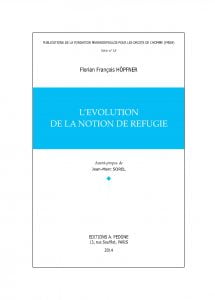
L’évolution de la notion de réfugiés (The evolution of the notion of refugees)
The intensification of the relations among peoples, societies, nations and States generates a multitude of fields of potential tensions among the same actors. International law proves to be an effective means of appeasement of these tensions and the multiplication of international regulatory frameworks follows the rationale of such intensification of international relations. The Geneva Convention … Read more
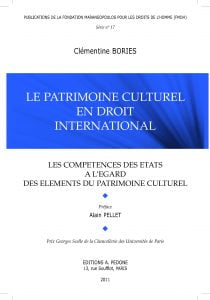
Le Patrimoine Culturel en droit International: Les compétences des Etats à l’égard des éléments du Patrimoine culturel (The cultural heritage in international law : the competences of the States with regard to the cultural heritage)
Cultural heritage constitutes a set of intangible and material elements which participate in the construction and life of human identities. A long-forgotten reality in law, it now poses challenges, when it comes to proposing a definition and then developing a legal regime adapted to its nature and needs. More particularly, international law faces a double … Read more
